In 2023, for the first time in Nepal, we started the China Week program where participants explored various dimensions of Nepal-China relations, from business, society, and culture. The 2023 China Week saw more than 150 registered participants, including three Chinese entrepreneurs with decades of experience in Nepal, one Nepali speaker sharing their experience of working in Bytedance, and plenty of activities that made the China Week experience a memorable one.
You can find more information on the 2023 edition of the China Week program here
Based on this, we came up with the 2024 China Week with a core theme: Sustainability. We believe that given China’s political and economic significance, China’s relationship with the world (including Nepal) will be determined by how countries work with China on addressing long-term sustainable challenges. For Nepal, it is even crucial to cooperate with China on finding sustainable solutions to overcoming its socio-economic and developmental challenges.
This year, our 5-days sessions saw government officials, lawyers, politicians, and students who were interested in sustainable development, highlighting the niche focus of our program. We had three speakers representing three diverse fields: Artificial Intelligence and Edtech, Chinese Media, and Environment Sustainability.
Each session was designed to be interactive and there was a lot of Q&A between The Araniko Project team, participants, and speakers.
As the only ongoing program of its kind in Nepal since 2023, this year’s China Week program provided a vital platform for researchers and professionals to explore the long-term sustainable challenges in Nepal-China relations.
A short synopsis of each day’s session
Day 1 explored why understanding China was important, what relations were like before 1955 and how Nepal - China relations have evolved over past seven decade. The lecture was delivered by the co-founder of The Araniko Project, Aneka Rebecca Rajbhandari.
Day 2 session was on answering whether China will lead globally in higher education. The session started with lecture by co-founder of The Araniko Project and current PhD student from Peking University, Raunab Singh Khatri on China as a knowledge superpower. It was followed by speaker’s session with Dr. Rupesh Regmi, founder of Wise Admit who talked about how Chinese universities are shaping future of global innovation.
Understanding China has become a hassle due to two main firewalls: Language and Internet. In Nepal, with rise of Chinese entreprernures, Nepali news and information catered to Chinese audience are gaining the market. This session was twofold: First, it navigated Chinese media for Nepali audiences to stay updated. This session was facilitated by Aneka Rebecca Rajbhandari. The second part was examining the market of Nepali news for Chinese audiences which was undertaken by Ramila Gautam, deputy-director of South Asia TV network based in Kathmandu.
The session explore impacts of climate change on the Hindu Kush Himalayan region, focusing on the region’s fragile eco-systems, glaciers and local communities. Additionally, it examined China’s role and initiatives in addressing these challenges and promoting sustainable development. The first session was conducted by Mr. Abiral Khatri, Climate Finance Specialist and co-founder of The Araniko Project. The second session was by speaker Dr. Yi Shaoliang, Intervention Manager of ICIMOD (International Center for Integrated Mountain Development).
Day 5: The final day of the summer school explored the environmental, social and governance (ESG) aspects of Chinese companies, including governance, structures, cross-cultural workplaces, and environmental goals. The session was facilitated by Abiral Khatri with the current trends in ESG around the world and Chinese policy. The next session was a screening of the documentary “The American Factory” highlighting the challenges and dynamics of a Chinese factory operating at a factory in post-industrial Ohio, United States, and the cultural clashes that came along with it.
Finally, there was an open discussion between participants and the team of The Araniko Project with recommendations for next year’s China Week.
The Araniko Project would like to thank The British College, Kathmandu for their cooperation as co-organizers, and to all the speakers and participants whose participation was immense to the success of this year’s China Week.
Keep reading the blog and also connect with us on other social media:
Facebook: The Araniko Project
Linkedin: The Araniko Project




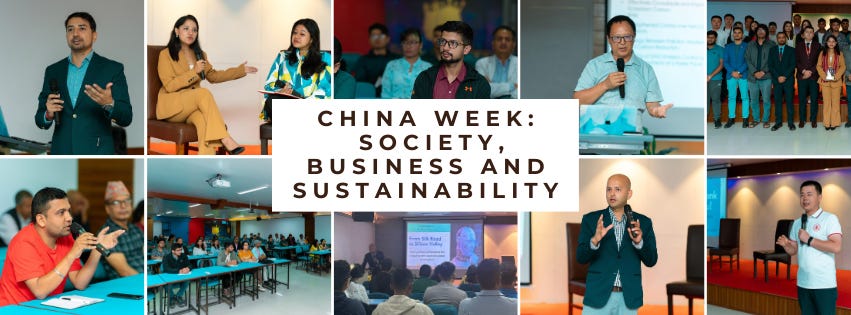
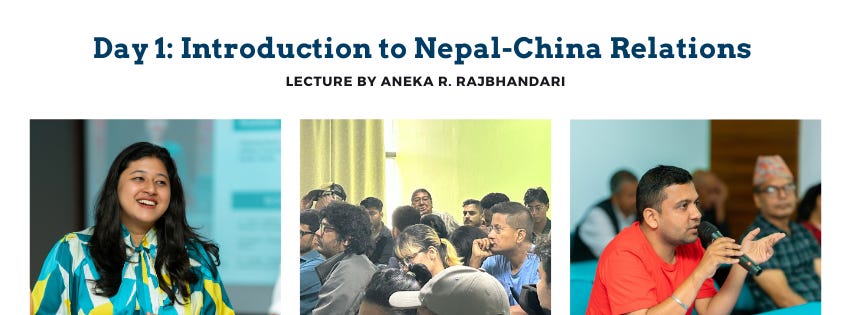
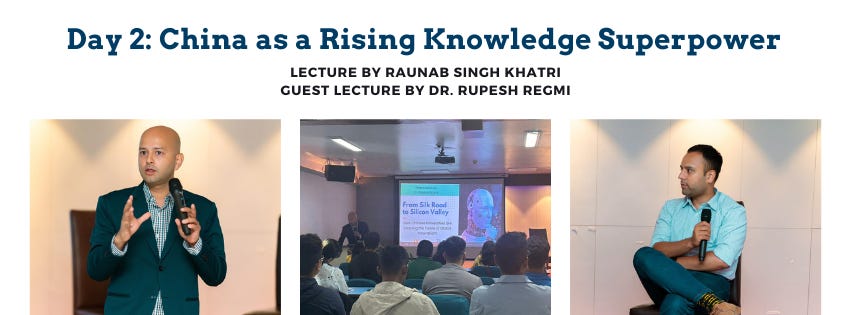
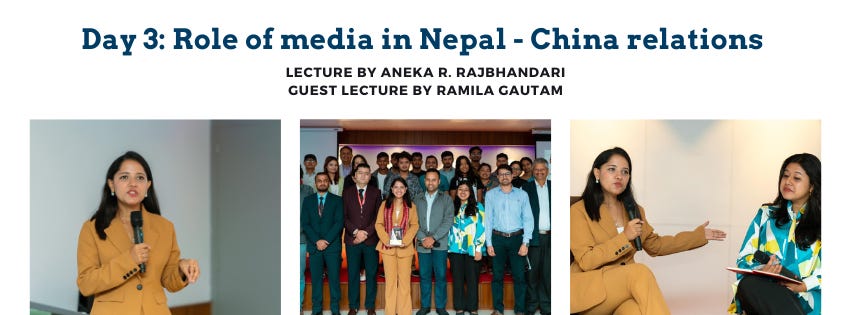
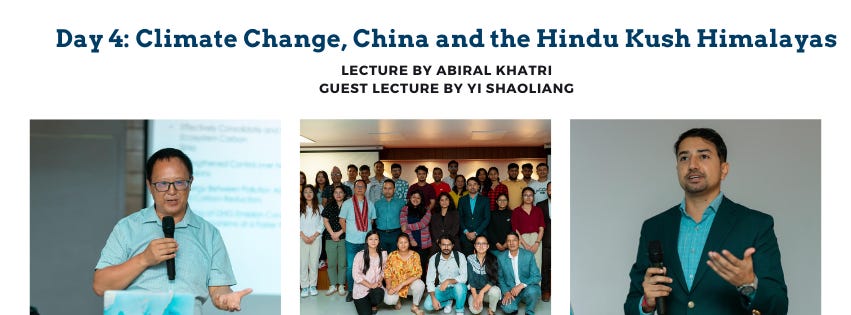
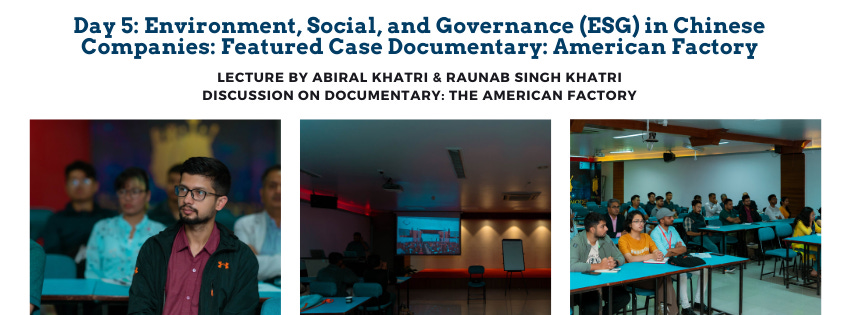
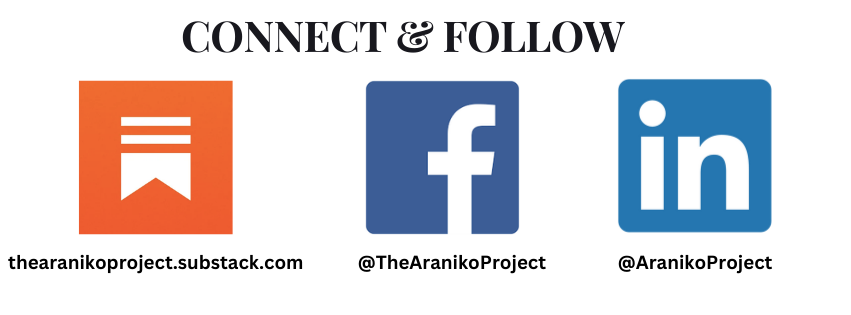
Nice. Day 4: Climate change due to also excessive use of fossil fuels along with faulty urbanization. These are root causes of devastation: all man made. The real destroyer is man. More and more and greater devastation will occur, no doubt.